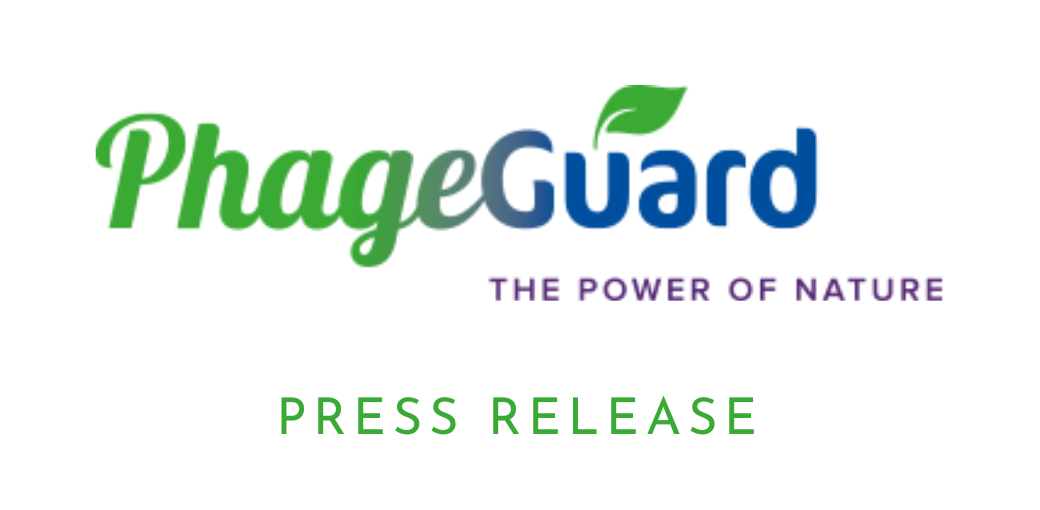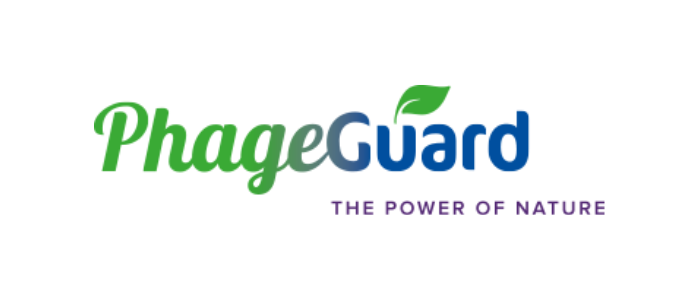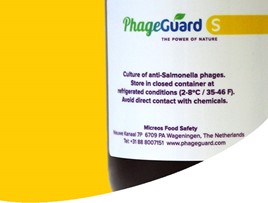

With the emergence of many antibiotic-resistant strains of bacteria, the food industry is working harder than ever to maintain the sensitive balance between chemicals, cleaning, antimicrobials, adhering to legislation, audits and most importantly: keeping the consumer happy. While all parties - across many fields of discipline - are trying their best to produce safe food products, foodborne illness remains a prominent public health concern, especially with the South African listeriosis outbreak still hot off the press. Thus, all food manufacturers are on the lookout for novel ways to improve their hurdle concept and put their best foot forward in going the extra mile to avoid any outbreaks happening on their watch.
Right on time enters PhageGuard, “the natural solution for food safety”. PhageGuard is a commercial solution of bacteriophage that is produced in The Netherlands. So just how did it land up on our doorstep?
Theo Cilliers, CEO of PhageSpecialist (the third-party distributor of PhageGuard within South Africa) established a strong partnership with PhageGuard (The Netherlands) in 2017. The two companies partnered up with the Dutch Oost NL, Netherland Foreign Investment Agency (NIFA), the Dutch embassy (Pretoria) and the Centre for Food Safety at Stellenbosch University to conduct a trial. The aim of the trial was to show that PhageGuard could be used in the South African food processing setting. The trial – made possible by a maximum subsidy given by RVO.nl (Rijksdienst Voor Ondernemend Nederland) – was supervised by leading food safety experts at the Centre for Food Safety.

Although phages have been scientifically proven to be effective across a wide range of food products in other countries, Cilliers chose the poultry industry for the South African study. The poultry industry has large capital inputs, rapid product throughputs and is an ever-evolving processing setting, making it a suitable candidate for such a trial. The trial entailed many hours of scientific research conducted by the Centre for Food Safety and numerous applications to various regulatory parties to obtain the necessary approvals for the trial to go ahead. Cilliers explained that after more than 3 years of groundwork, the trial finally came to life at the end of 2020 where PhageGuard S (a cocktail of Salmonella-specific bacteriophages) was applied in-line to approximately 3 million chickens in the processing setting, to reduce Salmonella. It was found that the phage had a significant impact. How exactly does this phage solution work?

Bacteriophages (phages) are the natural enemy of bacteria and work by infecting specific bacterial hosts and using the bacterial cell to replicate, killing the bacterial cell in the process. Phage therapy has been around for many years; however, it was put on the back-burner during the rise in popularity of antibiotics. Now that many antibiotics are no longer working, phage therapy is making a comeback. Phages are highly specific, making them safe to humans and all beneficial microflora. Phages are naturally-occurring in the environment, in fact, the last time you had a dip in the ocean it is likely that you were surrounded by billions of phages per millimetre of water. Phages also exist in abundance in our gut, on fresh vegetables, fermented food products and meat products, among many others. As mentioned before, PhageGuard S is a bacteriophage cocktail targeted at Salmonella. There is also PhageGuard Listex used for Listeria and PhageGuard E for E.Coli – just to name a few. Phages can be used as both a processing aid and an environmental hotspot treatment. The best part is that all these products are designed to infect a broad host range, meaning that all strains of concern in your specific processing setting are likely to be a suitable target for the phage.
Cilliers emphasizes that phages cannot replace routine cleaning, but is rather an additional step in ensuring food products are free from pathogens of concern, that could not be overcome by existing protocols. PhageGuard protects food products against possible recalls or outbreaks around the globe. The Centre for Food Safety is committed to collaborating with food companies to supply cutting edge solutions – such as the implementation of phage in their specific setting – to ensure a safer food industry for all. PhageSpecialist will oversee problem-solving, marketing and distribution of PhageGuard products in South Africa and other SADC countries.
Cilliers concludes with the bold statement that perhaps the future of food safety is to fight nature with nature, that to overcome bacteria of concern one must look to the natural enemy – which is bacteriophages.
PhageSpecialist, PhageGuard, The Centre for Food Safety, South African Poultry Association and Food Focus will be hosting a complimentary webinar on 15 April at 11h00. The webinar is titled: “Bacteriophages in the reduction of Salmonella on white meat during processing”.
This is an amended press release, after it came to the attention of Cilliers that there was a minor error on the previous release.



